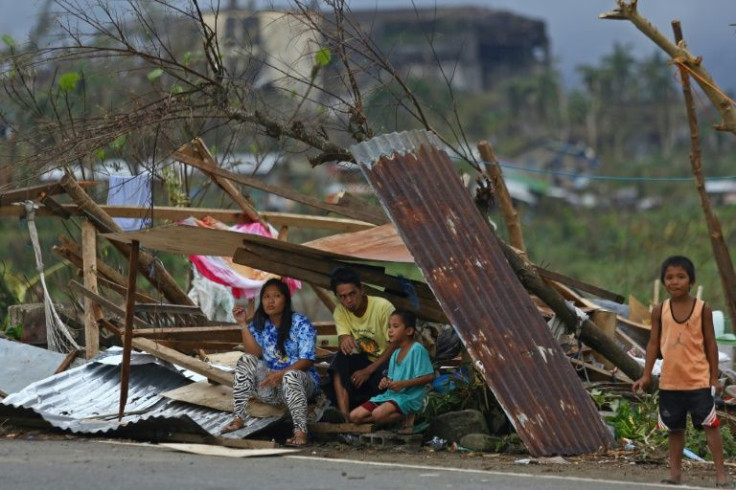UN Seeks $169 Million In Aid For Philippine Typhoon Victims
The United Nations has increased its fundraising target for victims of Typhoon Rai to $169 million as the Philippines struggles to recover from the devastating storm, the organisation's resident coordinator said Wednesday.
More than 400 people were killed and hundreds of thousands left homeless after Rai hit the archipelago as a super typhoon in December, ripping off roofs, shredding wooden houses and wiping out crops.
The UN initially sought $107.2 million for 530,000 people in the hardest-hit areas in central and southern regions of the country flattened by the typhoon.
But UN Resident Coordinator in the Philippines Gustavo Gonzalez said more than 70 field assessments showed "humanitarian needs remain very high".
The new target of $169 million would assist the 840,000 "most vulnerable people" in dire need of shelter, food, drinking water and sanitation facilities, Gonzalez said.
About 30 percent of the revised amount had been received, Gonzalez told AFP.
Humanitarian groups have been working with the government to distribute aid.
But the challenges were "enormous", said Gonzalez.

"Affected regions bore massive damage to infrastructure, agricultural land and the fishing sector, with local economies and livelihoods hit hard," he said.
Around 1.7 million houses were destroyed or badly damaged in the typhoon -- 600,000 more than in 2013's Super Typhoon Haiyan -- and tens of thousands of people remain in evacuation centres seven weeks after Rai made landfall.
Power disruptions or outages continued to plague 80 municipalities, he said.
The response effort had been hampered by an Omicron-driven surge in Covid-19 infections, Gonzalez said, describing it as a "crisis within a crisis".
Rai, the strongest typhoon to hit the Philippines last year, intensified faster than expected, officials said previously.
Scientists have long warned that typhoons are strengthening more rapidly as the world becomes warmer because of human-driven climate change.
The Philippines -- ranked among the most vulnerable nations to its impacts -- is hit by an average of 20 storms every year.
In 2013, Typhoon Haiyan was the strongest storm ever to have made landfall, leaving over 7,300 people dead or missing.
© Copyright AFP 2024. All rights reserved.











